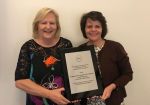Account Pending

We’ll review your submission and confirm when your account is created.
When your account has been approved, you can sign in using the below link.

Australian Research Highlights
Speaking internationally, Australian universities tend to punch above their weight when it comes to research outputs: they consistently rank highly in OECD per capita outputs, above even other strongly performing systems across Europe and North America.
Read more
What do the QS rankings by subject measure?
Read more
The ResearchMaster Team Congratulates Winner of the 2024 ACGR Award for Excellence in Graduate Supervision.
Read more
Could an AI win a competitive research grant?
We at ResearchMaster certainly use technology to help streamline the processes that are at the core of the competitive grants process, like smart costing and pricing tools and automatically filling e-forms. But the role of technology in knowledge work remains contested. Criticisms range from fears that AI will allow lazy shirkers to offload their work onto technology with nobody the wiser, to the evergreen anxiety that we will all soon be replaced by robots.
Read more
A new ERA of research quality assessment exercises will demand future-ready universities
Read more
World class research deserves world class support.
Read more
A brief review of peer review: Where did it come from? Where is it going?
Peer review has a long history. We look at its past and present, and contemplate its future. Peer review is a cornerstone of academic publishing. It’s supposed to ensure that published research is of a high standard by drawing on the knowledge of multiple experts in a field to make sure that the new information…
Read more
How Can We Arm Research Teams for Success?
Read more
Research sector demands high quality data management.
Read more
The University of Adelaide has upgraded to RME 7
The upgrade to RME 7 is a big step for the Go8 university. The university’s research systems team have collaborated extensively with ResearchMaster to ensure a smooth roll-out across their systems. The upgraded system offers individual researchers an improved experience in applying for funding and ethics clearance, and better visibility over their own activities. It…
Read more
Prime Minister’s Prize for Science Announced
Read more
The Top Women in Science
Read more
Celebrating 3 more Australian discoveries in health and medicine
Health and medical research is one area in which Australia excels. We look at three recently published studies focusing on health and medical research in Australia.
Read more
SES indicates university students are more concerned about education quality than freedom of expression
Read more
Researchers who want to do research are attracted to industry, too
Read more
ResearchMaster welcomes RME7.9.0
The ResearchMaster team is delighted to announce a range of enhancements now available in the ResearchMaster Enterprise (RME) RME7.9.0 release.
Read more
5 Top Tips for Competitive Grants Applications
Read more
New review for Australian Research Council bears watching
Read more
Not just universities responsible for Australia’s poor research commercialisation track record
Coverage of Australia’s relatively poor track record for research commercialisation focuses on research sector obstacles, but industry also plays a role.
Read more
Recent research projects could impact billions of consumers worldwide
Read more
3 Recent Australian Discoveries You Probably Didn’t Hear About
Read more
What are university rankings good for?
Whether university rankings are valuable information or rubbish depends on what ranking, what it measures, and how you use it.
Read more
Where did university rankings come from, anyway?
Read more
A brief history of university education and social mobility
Read more
Familiar jokes aside, qualifications in humanities, arts and social sciences offer tremendous value
Current funding policy has been characterised as disincentivising the study of HASS disciplines in Australia, but they actually offer a lot to graduates and to society.
Read more
From Gutenberg to the Internet, technology is a driver of education and research
Read more
Research supervision is a vital underpinning of research institutions
Read more
Scrapping ERA would be inimical to universities’ interests—here’s why.
ERA may be an imperfect framework but as proving value attains more eminence by the day, research evaluation becomes critical to universities’ interests.
Read more
Could improving wellbeing for academic staff elevate student experience?
Read more
What is the real cost of your research?
Read more
We need to look at research regulation in Australia
Australia’s research is one of our great strengths. But the challenges of managing our research are many and complex.
Read more
5 Surprising Australian Technology Innovations
Read more
Disruption to the culture of academia might be a good thing
Read more
Covid-19 made science communication more important than ever—but we’re still having the same problems we had 20 years ago
The covid-19 pandemic has exposed vulnerabilities in health research translation, but it is far from the first time we’ve had problems with medical research and misinformation.
Read more
Research is vital to our economic and social growth. But how has the pandemic affected our PhD students?
Read more
5 life-saving Australian inventions you didn’t know about
Read more
Funding diversity is the key to resilience for the Australian higher education sector
The pandemic has exposed a weakness in our research funding model in Australia. Instead of switching our overreliance from one source of funding to another, we must diversify to promote stability and resilience.
Read more
Emerging technologies and online marketplaces are changing the way students study in Australia
Read more
Australian research is vital to our future
Read more
How the pandemic changed research
The covid-19 pandemic changed research, from how we approach collaborations to how we publish and disseminate new knowledge. Here’s some of what we learnt.
Read more
Expanding research commercialisation presents new challenges
Read more
DCA awarded ISO 27001 certification
Read more
The 3 reasons why Australia is turning to microcredentials
Bite-sized certifications provide accessible up-skilling to Australian workers and lower risk for employers.
Read more
How can Australian universities improve their ability to adapt to regulatory uncertainty?
Read more
Well managed technology solutions reduce overwork for academic staff
Read more
The Top 3 Things Universities Must Do to Thrive in 2021
Universities must learn to fully embrace being online, the opportunities afforded by research commercialisation, and administrative flexibility to succeed.
Read more
Massey University Te Kunenga ki Pūrehuroa (Massey) has successfully upgraded to ResearchMaster Enterprise Version 7.5.1 (RME 7.5.1)
Read more
DCA Group appoints Michael McCallum as Chief Executive Officer- ResearchMaster
Read more
Charles Sturt University Upgrades to ResearchMaster Enterprise version 7.6
The Research Team at Charles Sturt University have successfully implemented a major upgrade to ResearchMaster Enterprise Version 7.6 (RME).
Read more
In the wake of Australia’s Foreign Relations (State and Territory Arrangements) Bill 2020 research administration is more important than ever
Read more
University of the Sunshine Coast Successfully Upgrades to RME7.6
Read more
ResearchMaster Partnering with Victoria University
Victoria University (VU) recently upgraded to ResearchMaster Enterprise Version 7. Hear from the team of both the Research Services and the Graduate Research Office as they share part of their journey
Read more
Victoria University of Wellington Successfully Upgrades to ResearchMaster Enterprise Version 7
Read more
2021 ResearchMaster Award for Excellence in Research Management
Read more
Is upgrading your research management system worth the effort? Alex Skevofylakas has the answers
Read more
Winners Announced: 2021 ACGR Awards for Excellence in Graduate Research Education
Read more
Victoria University implements ResearchMaster Enterprise 7
Read more
ResearchMaster Enterprise 7.6 Latest Release
Read more
University of Wollongong wins the 2020 ResearchMaster Award for Excellence in Research Management
Read more
ResearchMaster Supports ACU Candidature Services Success
Read more
ResearchMaster Inaugural HDR Forum
Read more
ResearchMaster selected to partner with Curtin University to deliver Research Management Solution
Read more
DCA achieves PCI-DSS certification for data security while processing 20M transactions
Read more
Australian Council of Graduate Research shines a bright light on excellence in research training
Read more
ResearchMaster QPR2020 winner announced
Read more
Australians are attaining more higher degrees than ever before, so what is driving them away from university roles?
Read more
Making the most of technology to ease the burden of research administration
Read more